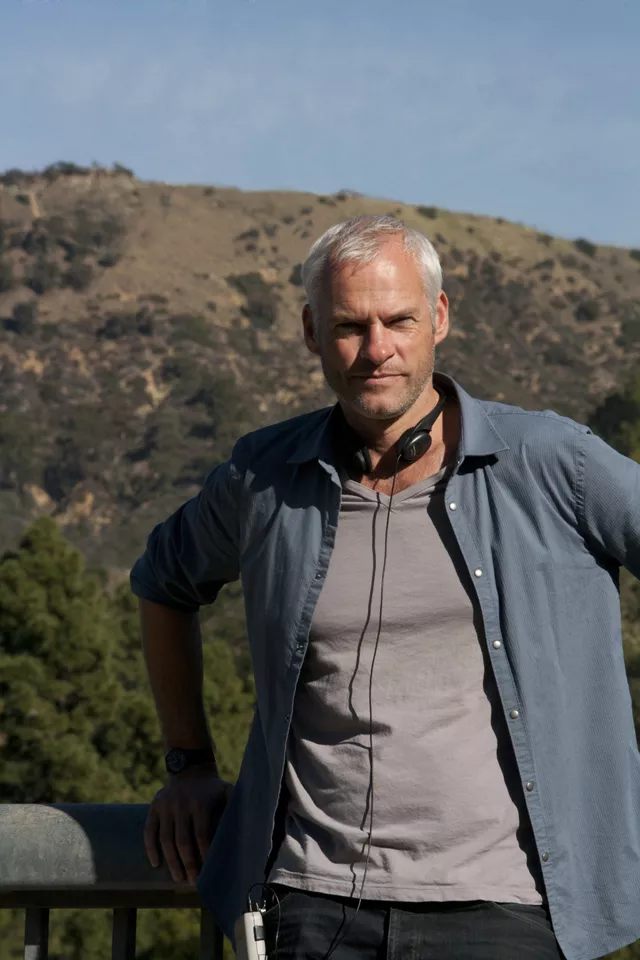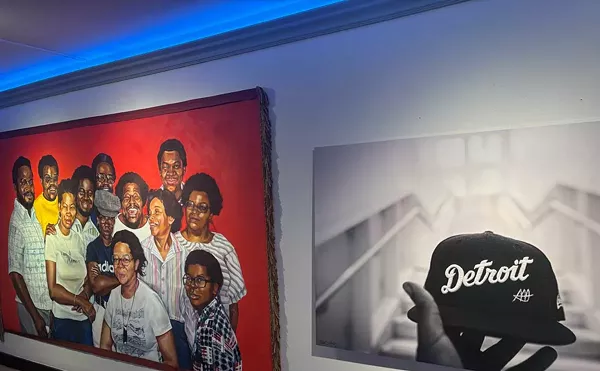
Audio By Carbonatix
[
{
"name": "GPT - Leaderboard - Inline - Content",
"component": "35519556",
"insertPoint": "5th",
"startingPoint": "3",
"requiredCountToDisplay": "3",
"maxInsertions": 100,
"adList": [
{
"adPreset": "LeaderboardInline"
}
]
}
]

In 2008, the Detroit Film Critics Society selected Martin McDonagh as its breakthrough artist of the year. After more than a decade of celebrated stageplays, including The Beauty Queen of Leenane, The Cripple of Inishmaan and The Pillowman, the Irish playwright made the leap to the big screen with his inky black comedy In Bruges. Pairing Colin Farrell and the great Brendan Gleeson as hit men stranded in Belgium, the movie mixed mordant humor, moral introspection and shocking violence into a surreal and hyper-literate stew.
Last month, McDonagh screened his sophomore effort, Seven Psychopaths, at the Toronto International Film Festival. Leaving Europe behind for Hollywood — and attracting a stellar cast — the film centers on a screenwriter (Colin Farrell) suffering writer's block who gets mixed up with a pair of dog-nappers (Sam Rockwell and Christopher Walken), who unknowingly kidnap the adorable pooch of a psychotic gangster (Woody Harrelson). McDonagh's trademark irreverent approach to violence and brutality is on display in a sometimes scattered, always meta examination of Hollywood's preoccupation with guys with guns. We recently caught up with him.
Metro Times: It seems like the rule in Hollywood films is that you don't kill kids and you don't kill dogs. In In Bruges, you shot an altar boy. In Seven Psychopaths, however, the dog gets a pass. How come?
Martin McDonagh: Ah-ha! In the original pass of the script, the dog didn't get a pass. But I ... I chickened out. But with In Bruges, the whole plot was based around the fact of that killing — the guilt and the horror. The dog aspect in Seven Psychopaths was almost a jokey setup to go to a different place. I guess the dog could have lost his brains at the end, but it was such a cute little doggie.
MT: You didn't have trouble killing a bunny in your short film Six Shooter.
McDonagh: That's true. And Tom Waits' bunny makes it out of this one alive. I guess I'm getting soft and safe in my old age. Or I've been corrupted by Hollywood already.
MT: So, you've left Europe, relocated your writing to L.A., and picked a screenwriter as your main character. Has Hollywood become the promised land for storytelling?
McDonagh: Christ, no. What's the opposite of that? No, it seems more like a place that just regurgitates the old stories. Or the old non-stories.
MT: Then why set your film in Hollywood? Aren't there enough psychopaths in Ireland?
McDonagh: I think the better psychos are over here. Ours are way too literate. And the access to guns is a little harder.
MT: In your stage play The Cripple of Inishmaan, Hollywood is portrayed as a kind of seductive yet exploitative force. Now, you're writing and shooting there. What does it represent to you?
McDonagh: Though I love films, I don't find Hollywood all that alluring. I've always kept the place at arm's length. I guess because my favorite filmmakers were all burned by Hollywood. Or had their films destroyed or, at least, abused by the industry. Orson Welles, Peckinpah — as much as they are a part of cinema history they were fucked over completely by Hollywood. So, I've never felt like I wanted to join that party.
MT: Colin Farrell's character, Marty, is a screenwriter [in Seven Psychopaths]. His approach to writing is to try to create seven characters — the psychopaths — before developing his story. Is that similar to your own process?
McDonagh: That's definitely not my process. And his whole writer's block thing is nothing I've ever had or worried about. There's a difference between laziness and writer's block. I've got laziness ... and lots of excuses. Plus I'd never write drunk like he does. I don't think you really can.
MT: When I drink, writing is pretty much the last thing I want to do.
McDonagh: Exactly. Drinking more is what I want to do. I guess that's called alcoholism.
MT: Do you approach your films from a moral point of view?
McDonagh: I would say so. I think In Bruges is a very moral film. Yes, it's a hit man story, but it's all about guilt. And Seven Psychopaths is about how Marty worries and fears about putting violent movies out into the world. He wants to do something better than that.
MT: But what does that say about you? You're commenting on the violence but you're indulging in it as well.
McDonagh: Yeah, it's a very violent film.
MT: So, is there a hypocrisy there?
McDonagh: Conversely, I think if a bunch of 14-year-old Expendables type fans go see it and end up questioning why we have to have guys with guns in every single Hollywood film or see the strength of someone who refuses to use a gun that'd be something.
MT: So, is your next movie going to be about peace and love?
McDonagh: [laughs] The next one is going to be darker. There'll be nothing meta about it. It's actually the opposite of this with a very strong female lead, a 55-year-old strong woman.
MT: Which is just box office gold.
McDonagh: [laughs] Yeah. But it's quite small and needs only a small budget. But we'll have to see how this goes. If Seven Psychopaths completely tanks, you'll probably never hear from me again.





